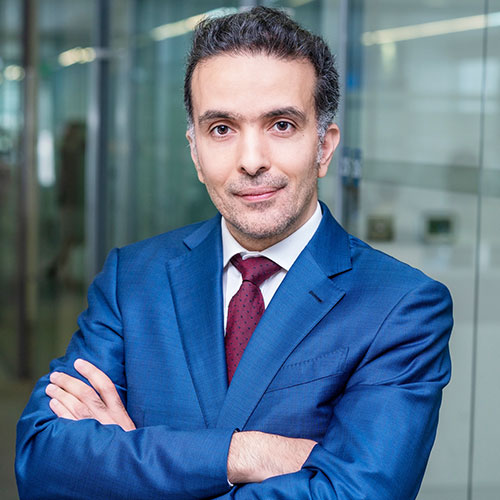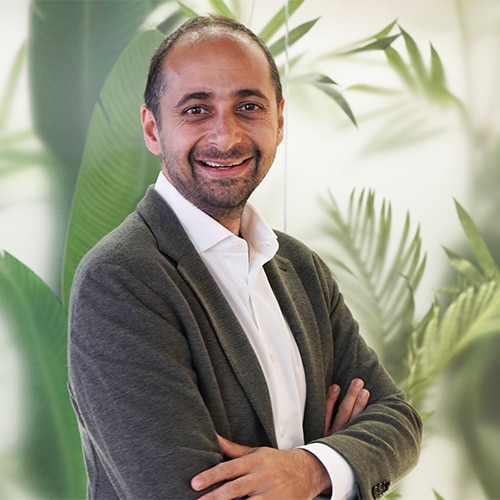With its abundant solar and wind energy, the region can produce renewable energy at the lowest cost in the world—which potentially positions it as a global green-energy superpower.
With its abundant solar and wind energy..
The central argument of Arabian Gambit is that GCC countries can benefit economically in significant ways as they shift from being “petro states” to becoming “green states.”
They will be able to make this transition because the region is the world’s lowest-cost producer of renewable solar and wind energy, along with its role as the leading exporter of fossil fuels. This means that, at every point on the path from a hydrocarbon-based energy system to a largely decarbonised one, Saudi Arabia and its neighbours can configure their energy mix for the desired CO2 emissions level while avoiding the turmoil of supply shortages and price shocks.
Upending conventional wisdom about how the transition to net-zero emissions could eclipse the prosperity and strategic power of GCC countries, Arabian Gambit argues that it will instead put the region in the driver’s seat of the high-priority efforts to address climate change.
The region has a long history of energy leadership. Now, more than ever, the authors say, it can assert that leadership, this time with a focus on sustainable and cleaner sources of energy.
Arabian Gambit identifies five priority areas in which the GCC countries will be able to make themselves key players in the ongoing energy transition. They are:
Arabian Gambit sheds light on sustainability strategies shaping the Middle East. Dr. Shihab Elborai, Partner at Strategy& Middle East and co-author of the book, joined Bloomberg Al Sharq to discuss key insights and the region’s environmental transformation.
We are excited to bring you our short film, showcasing how the Arabian Gulf is leading the global energy transition. Join Dr. Yahya Anouti and Dr. Shihab Elborai as they share their expert insights on how the region’s unique strengths in large-scale projects, innovation, and investment can redefine the future of sustainability and clean energy.
The energy revolution starts here—our region, your future. Watch now!
“In chess, a gambit is about sacrificing a minor piece to gain a strategic and often winning advantage. The sacrifice that this Arabian Gambit requires is about taking a calculated risk and investing ahead of demand in order to gain an insurmountable advantage in the future”
Shihab Elborai
Partner, Strategy& Middle East
“GCC members are ideally positioned to lead the global energy transition and, in the process, become the green superpower. The transition will arguably be the most profound shake-up in the global economy in 100 years”
Yahya Anouti
ESG Leader, Partner, Strategy& Middle East
The GCC countries are strategically positioned to play a crucial role in global supply chains as energy suppliers and hubs for trade, logistics and manufacturing. Their efforts to diversify their economies, develop infrastructure and invest in innovation are all geared towards adding value to their economies and solidifying their position in the global supply chain landscape. As they progress on transitioning their industrial sectors, they are also transforming their human capital. With parallel developments to shape institutions and leverage their innovation and technological focus, the GCC is well placed to lead the future Clean Energy Souk.
“This book is essential reading for anyone who wants to understand how the (GCC) region can lead and benefit from the global transition to a low-emissions energy future,”
Dr Fareed ZedanProfessor Emeritus of Electrical Engineering at the King Fahd University of Petroleum & Minerals“This book is essential reading for anyone who wants to understand how the (GCC) region can lead and benefit from the global transition to a low-emissions energy future,”
Dr Fareed ZedanProfessor Emeritus of Electrical Engineering at the King Fahd University of Petroleum & Minerals“The authors, through Arabian eyes, outlie an aspirational roadmap that could transform the region into the green superpower of tomorrow,”
Naser El TibiSenior Presenter & Producer of “Mustaqbal Al Tazq” at Al Arabiya News.“In Arabian Gambit, the authors challenge conventional wisdom and outline a daring new vision for the region,”
Eric Spiegelformer CEO of Siemens USA.Get your copy of Arabian Gambit here




Menu